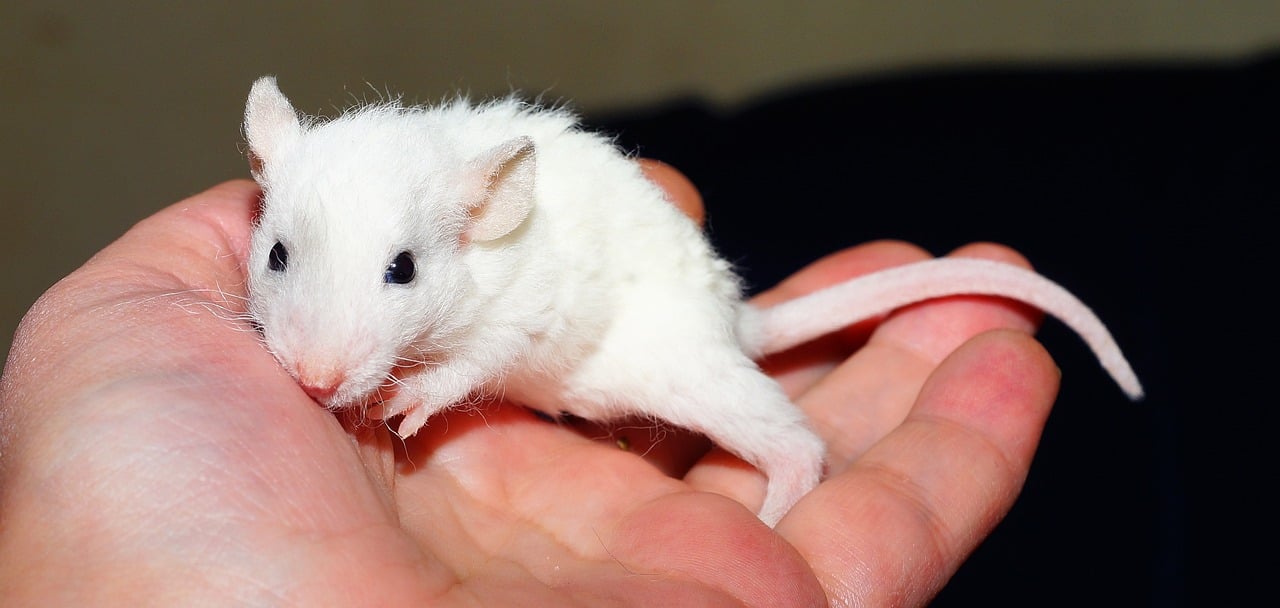NIH Accepts PETA Scientists’ Suggestions for Boosting Non-Animal Research
Update (February 7, 2024): Persistence pays off.
The National Institutes of Health (NIH) has finally listened to the calls of PETA scientists and committed to promoting non-animal research, including opening up funding and training opportunities for animal-free science. This welcome, long-overdue development also follows a powerful bipartisan letter to NIH from members of Congress—led by Reps. Nancy Mace (R-S.C.) and Ted Lieu (D-Calif.)—that referenced our Research Modernization Deal and pushed the agency to adopt superior, animal-free research methods. We’re grateful and proud to have worked with them.
NIH is putting this commitment into effect by creating a new Common Fund program that will ensure that resources are available for implementing superior, human-relevant technology—a stunning development for which PETA scientists have long called and that could mark a turning point in our fight to relegate animal experimentation to the dustbin of history.
Here’s what we did to help make this happen:
PETA scientists have repeatedly and formally recommended that NIH increase funding for non-animal methods, also called “new approach methodologies.” We’ve also informed NIH about several ways to do that, including through specialized funding, infrastructure, and training and by creating opportunities for collaboration between physicians and scientists.
On December 14, 2023, a special NIH working group on non-animal methods issued its recommendations to the NIH director’s advisory committee. The suggestions made by PETA scientists were incorporated into many of the recommendations, which were unanimously accepted. For example, the working group advised NIH to do the following:
- Create new funding mechanisms for non-animal research
- Inform scientists, regulators, grant reviewers, and the public about these methods and their benefits and provide scientists with training in them
- Establish dedicated national and regional resources and repositories for the tools needed for non-animal science
- Create collaborations among professionals in various disciplines and foster connections between researchers and clinicians to better incorporate patient perspectives
- Reduce bias against non-animal methods among researchers and reviewers who are less familiar with them
- Support research that examines the cost benefits of non-animal methods compared with animal use
- Coordinate the use of non-animal methods within and outside of the U.S.
- Ensure that data from non-animal methods are transparent and widely available
The takeaway: It appears that someone at NIH has been listening!
This is progress, but to truly modernize science, increased investment in non-animal methods alone isn’t enough. NIH must also stop funding junk science that tears baby monkeys away from their mothers, inflicts brain damage on monkeys and terrifies them with fake snakes and spiders, and punctures the intestines of mice, among other horrors. Taxpayer funding is not an infinite wellspring of cash to throw at whatever sadistic ideas experimenters have. PETA congratulates the working group on its recommendations and says, “Keep going!”
What You Can Do
The National Institute of Mental Health (NIMH), which is part of NIH, has spent decades wasting taxpayers’ money on experiments on animals that fail to recreate the complex conditions that lead to human psychiatric disorders. Please sign our letter to the NIMH National Advisory Mental Health Council urging it to redirect funds away from archaic, pointless animal experiments and toward modern, human-relevant research:
If you’re in the U.S. please take another action for animals abused in laboratories and champion good science by supporting PETA’s Research Modernization Deal, which outlines a comprehensive strategy for replacing animal experiments with modern, human-relevant research methods:
From PETA and executive producer Bill Maher, the new docuseries ‘The Failed Experiment’ exposes what most people don’t know about experiments on animals.


